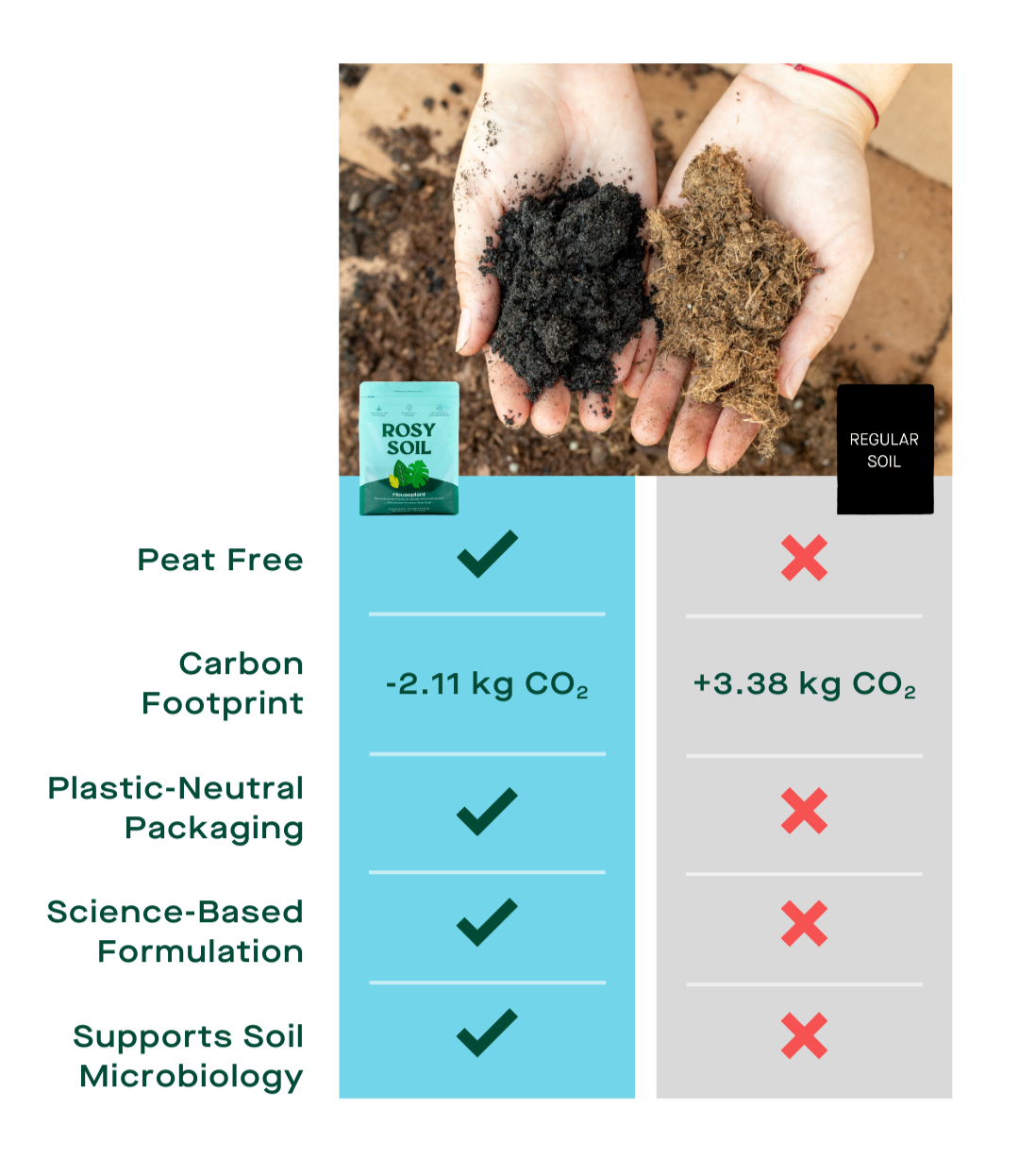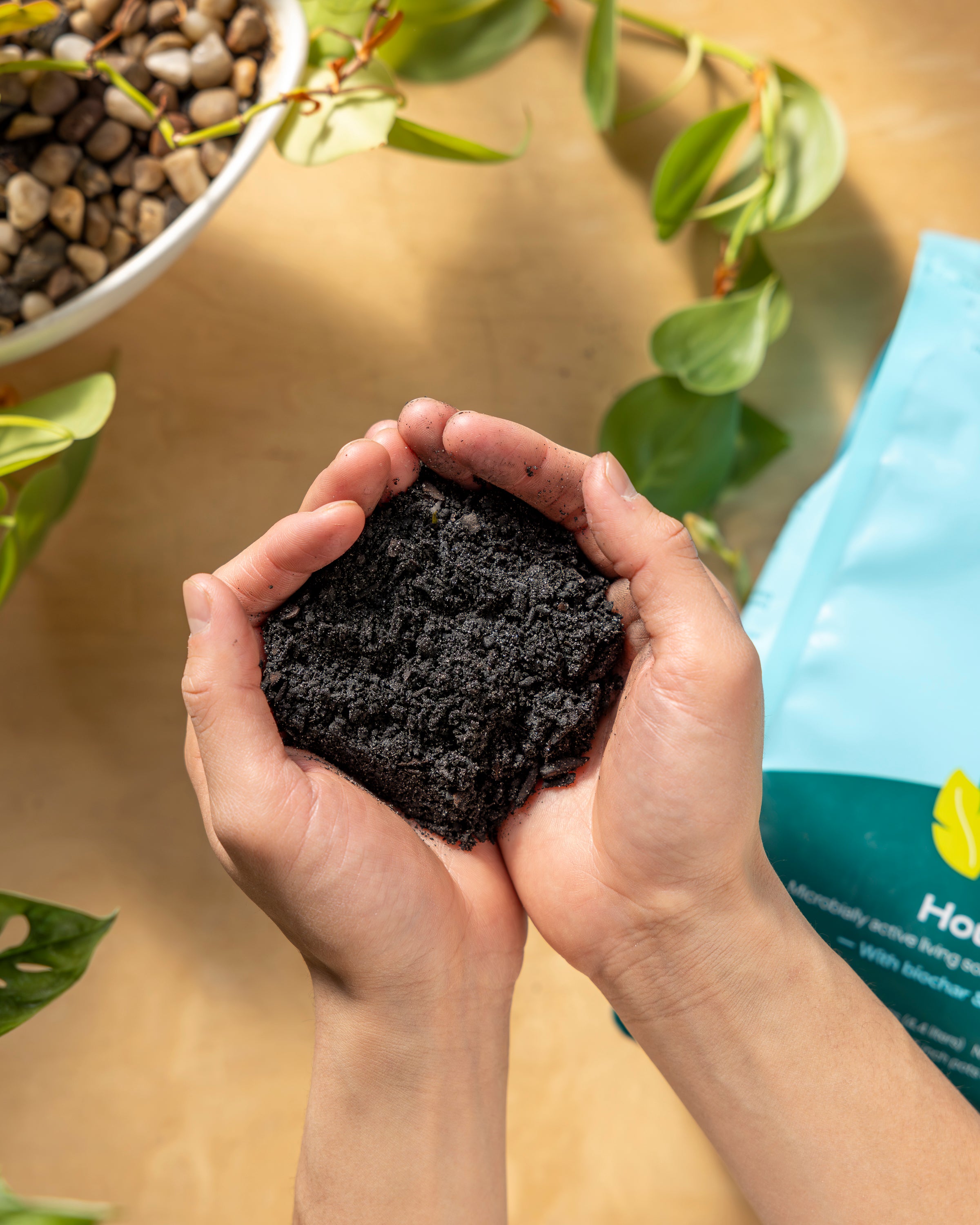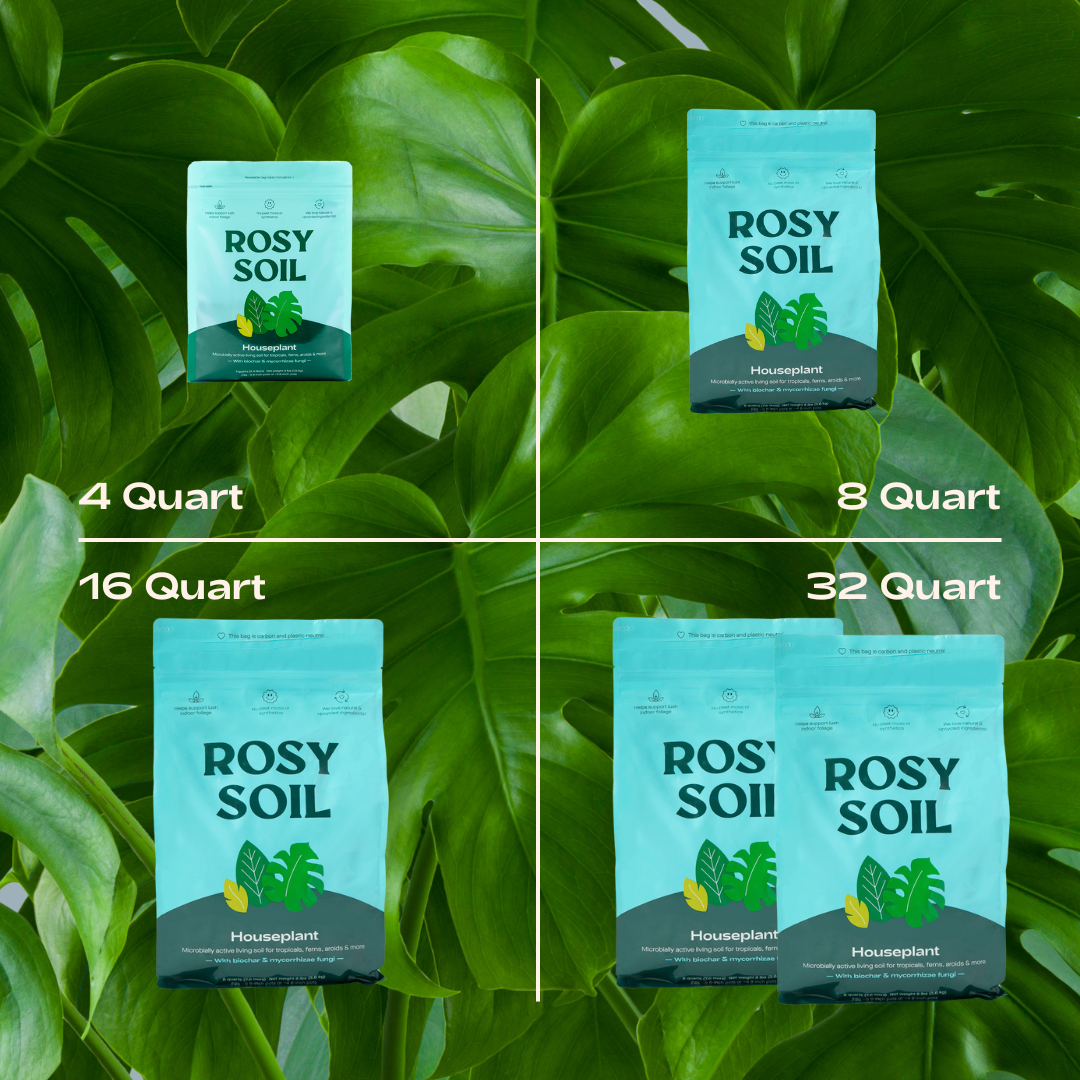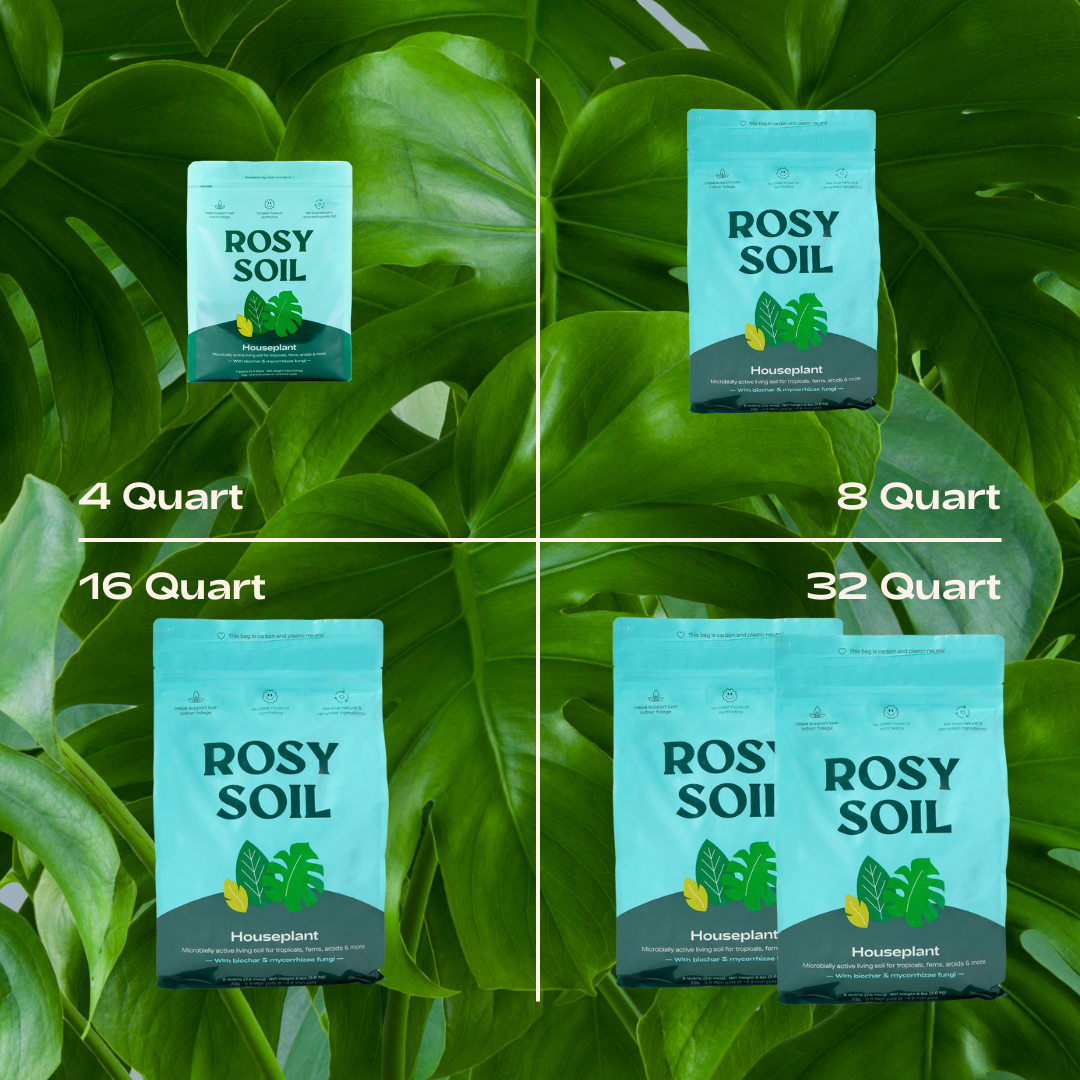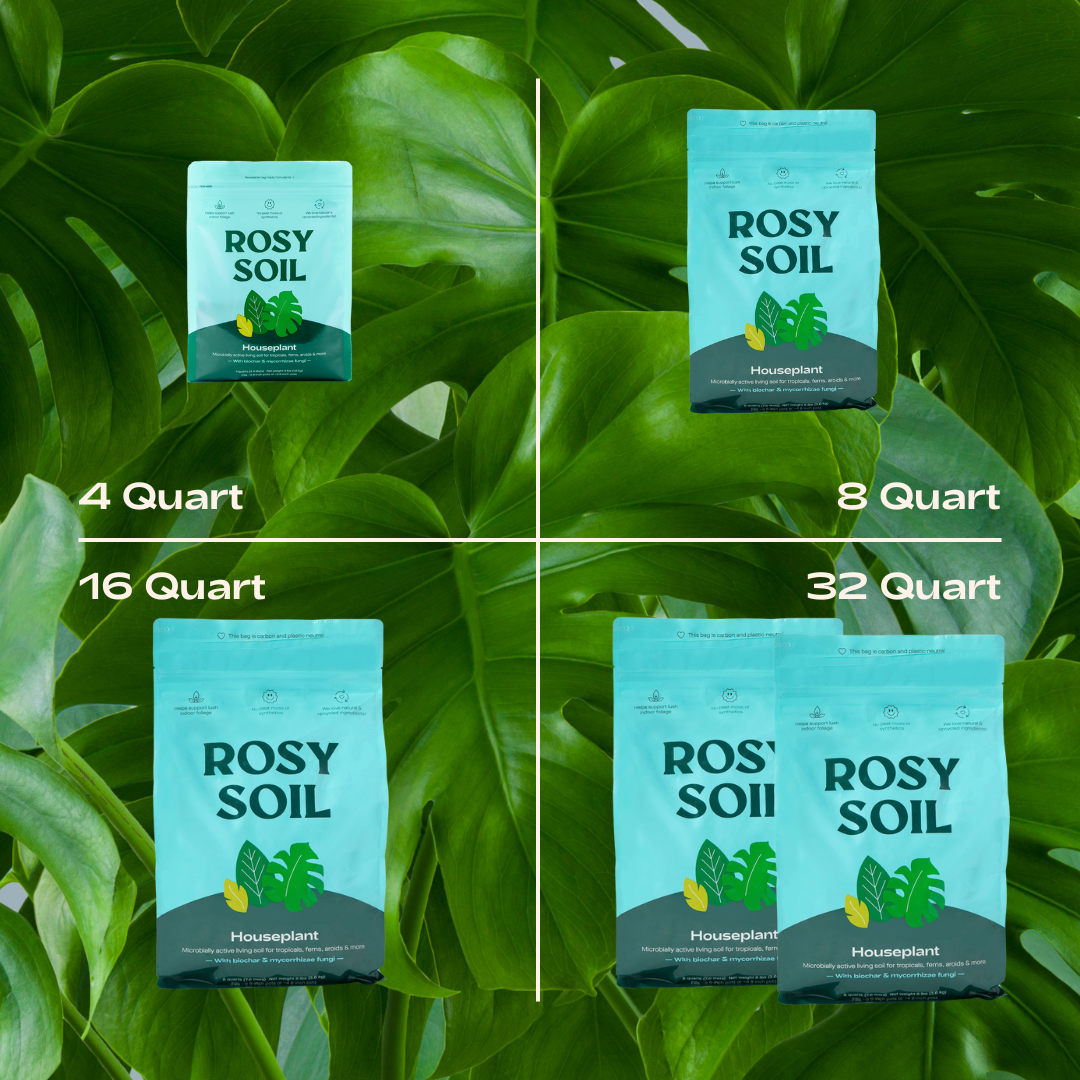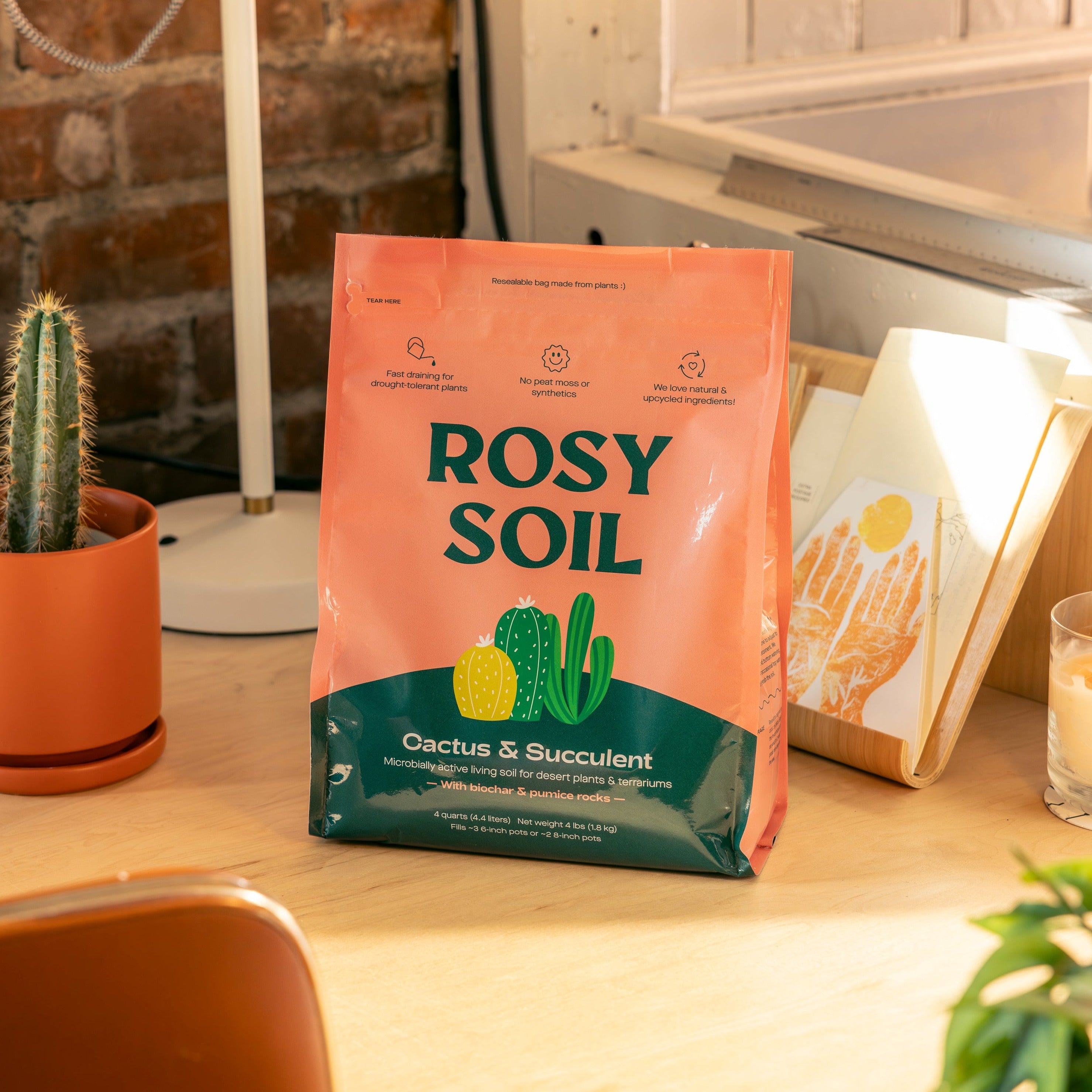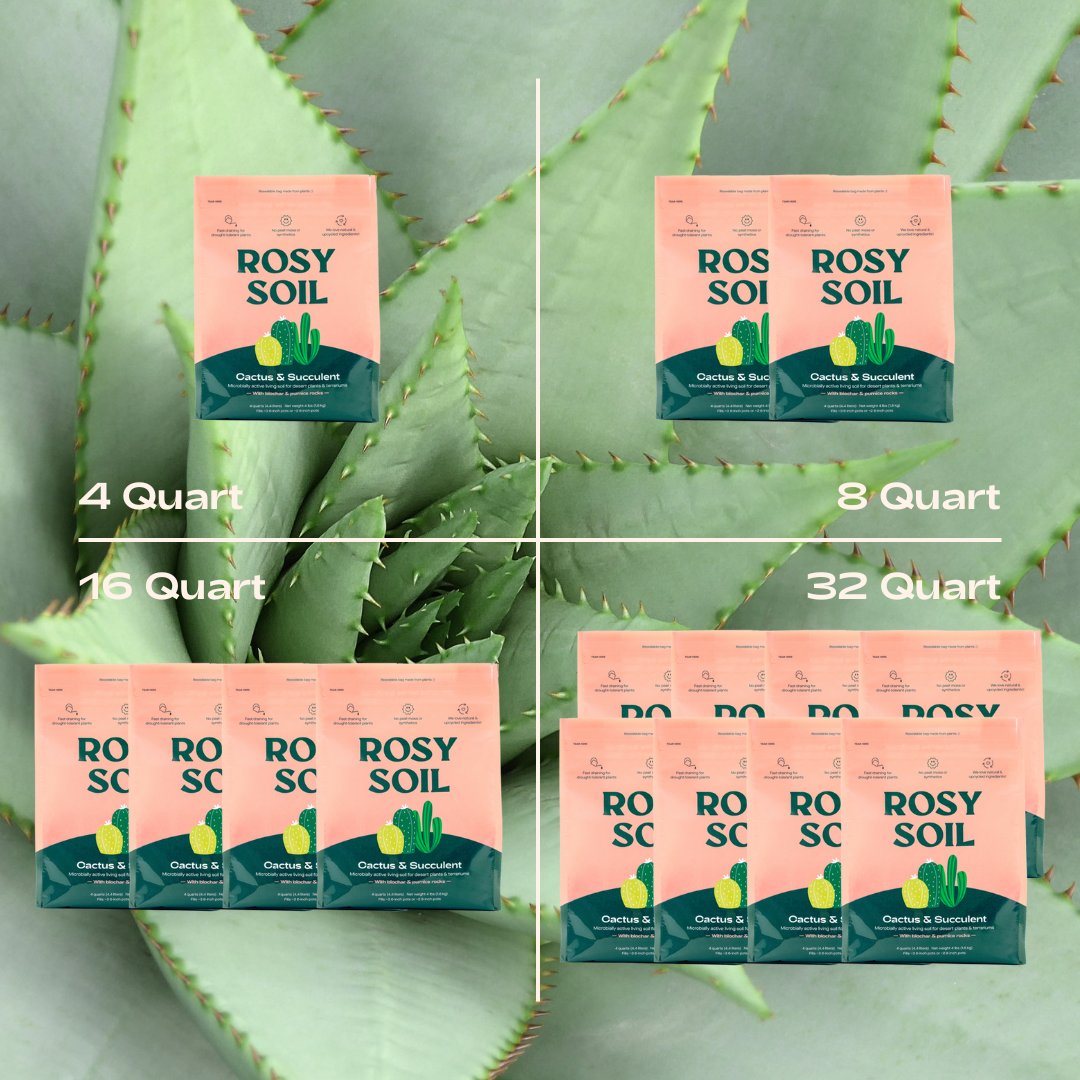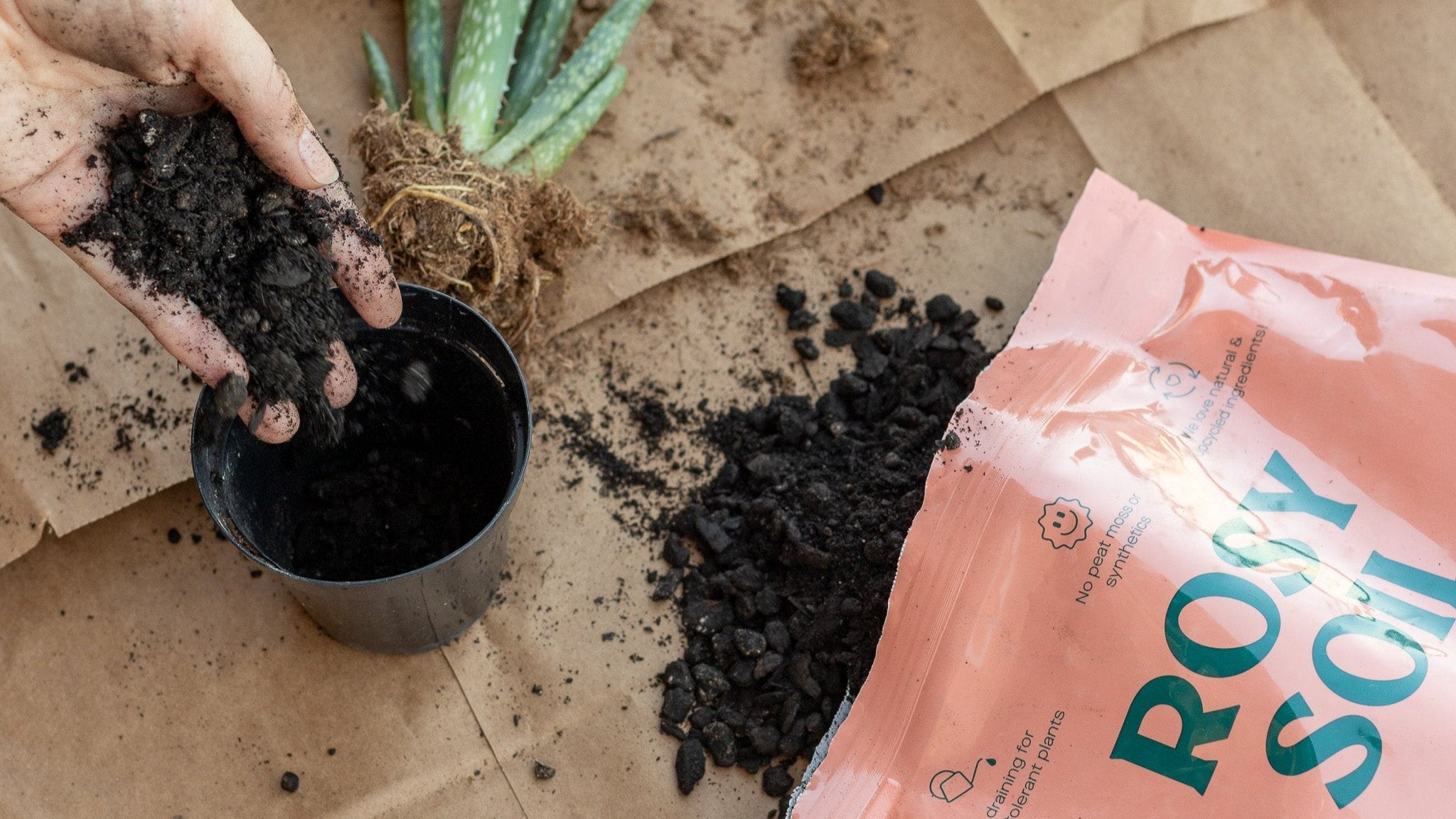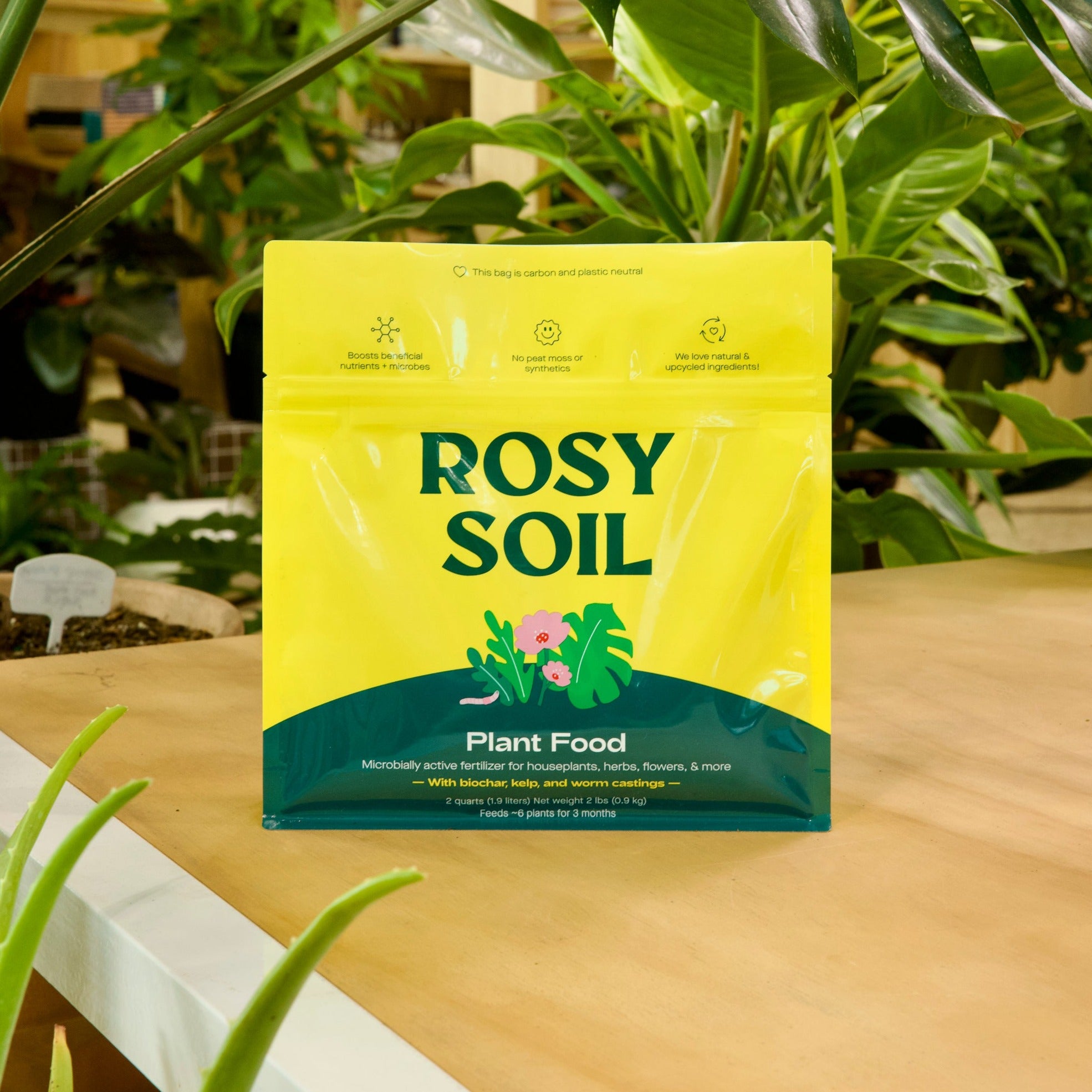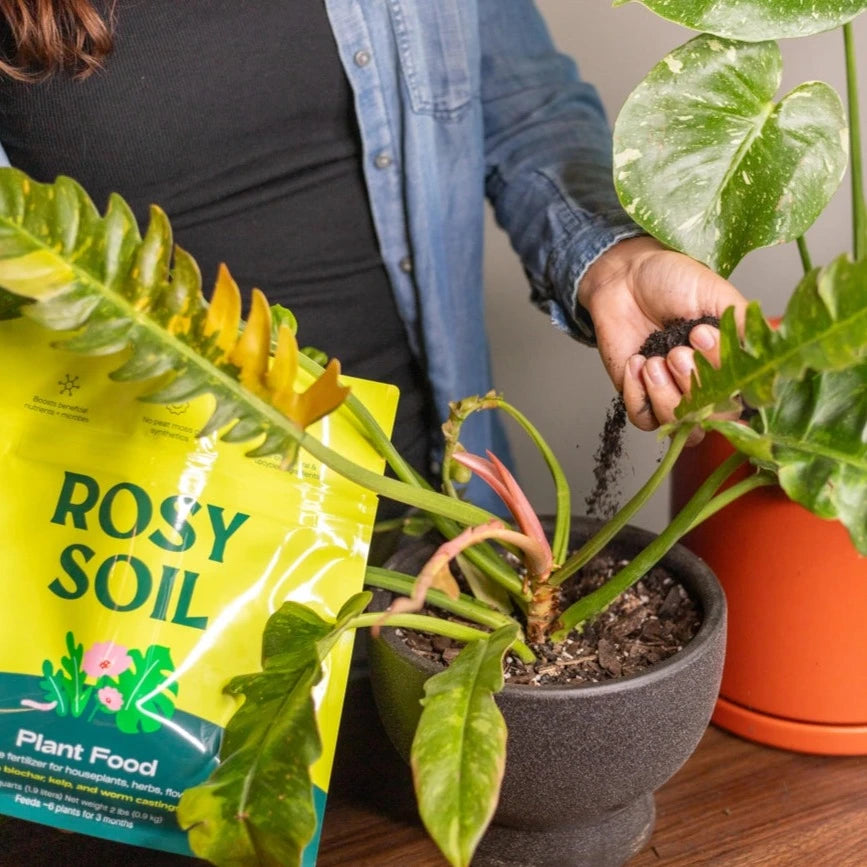We’re a team of plant people united by the crazy idea that good soil can change the world.
It’s why we’ve set out to create the highest quality products with the lowest possible environmental footprint.
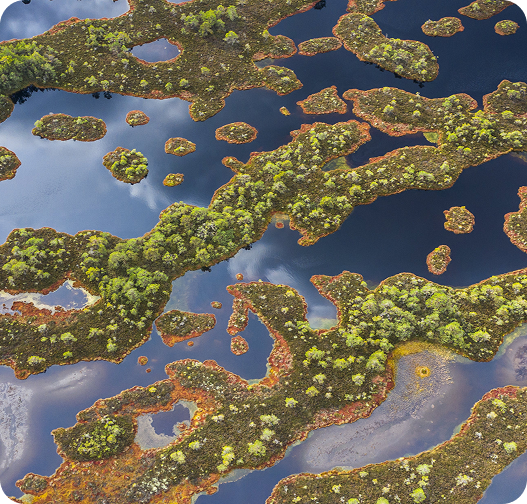
We’re peat-free on purpose — and proud of it.
Where’s the Peat? Not in Our Soil. Ever.
Most potting mixes use peat moss — a material that’s mined from fragile wetlands and releases massive amounts of carbon into the atmosphere. Once it’s gone, it takes thousands of years to grow back.
We think that’s unacceptable.
That’s why Rosy Soil is 100% peat-free — and always will be. We’ve designed our blends to be better for your plants and the planet, using ingredients that restore the Earth instead of stripping it.
What We Use Instead
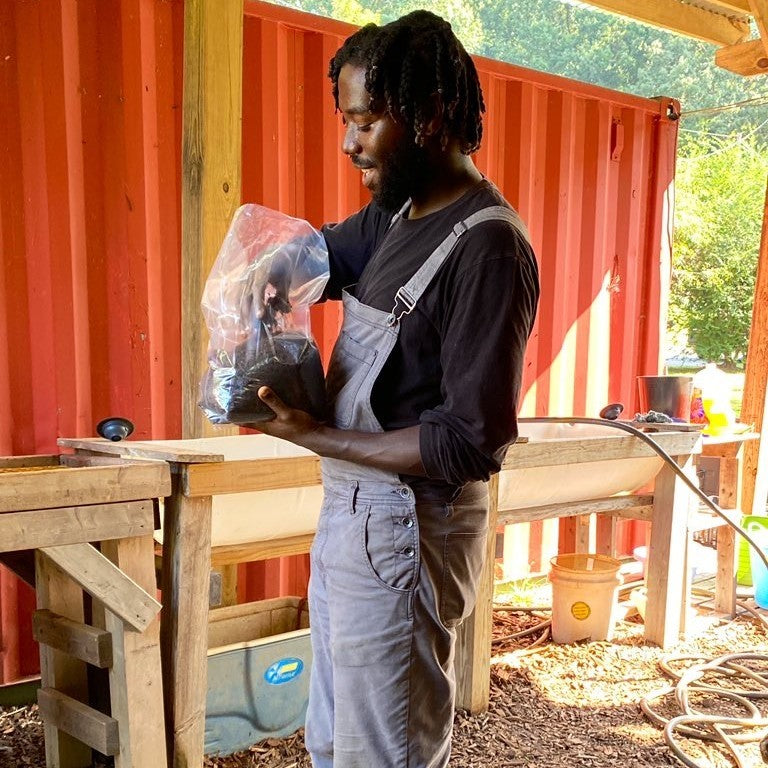
Built by Scientists. Loved by Plants.
We’re not just mixing dirt in a bucket. Rosy was developed with thousands of trials and led by Justin “Jules” Giuliano, an award-winning organic farmer and regenerative agriculture expert.
Jules studied at the Rodale Institute, won a Cannabis Cup for his cultivation work, and managed an urban farm before becoming Rosy’s Lead Soil Researcher. Now, he works with our scientific advisory board to ensure every blend we make supports healthy roots, lush growth, and long-term soil life.
Our Science Advisory Board
Here’s what sets Rosy apart from most soil:
Science-Backed & Planet-Positive
